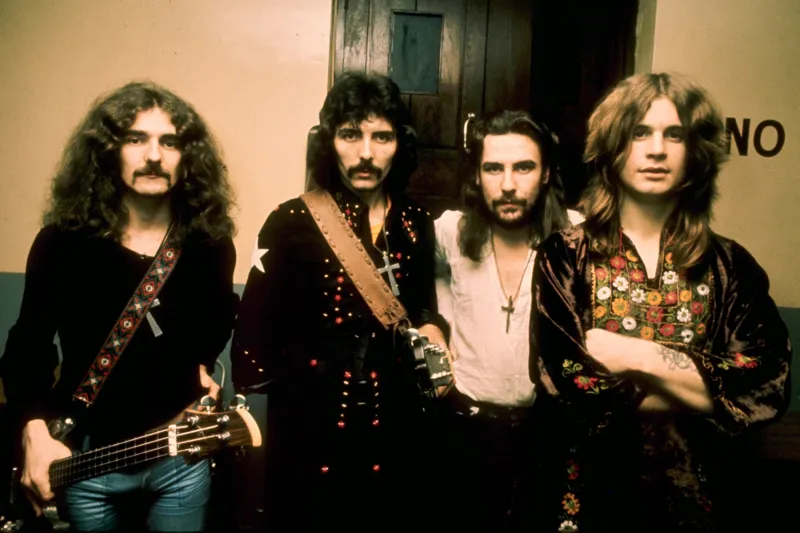 In 1979, Black Sabbath—pioneers of heavy metal—came to the brink of collapse, threatening to end their run as one of the most influential bands in rock history. At the center of the turmoil was a toxic mix of personal issues, substance abuse, and creative differences that pushed the group to its limits. The band’s internal struggles culminated in the dramatic exit of Ozzy Osbourne, leaving the future of Black Sabbath in serious doubt.
In 1979, Black Sabbath—pioneers of heavy metal—came to the brink of collapse, threatening to end their run as one of the most influential bands in rock history. At the center of the turmoil was a toxic mix of personal issues, substance abuse, and creative differences that pushed the group to its limits. The band’s internal struggles culminated in the dramatic exit of Ozzy Osbourne, leaving the future of Black Sabbath in serious doubt.
By the late 1970s, Black Sabbath had achieved monumental success, with albums like *Paranoid* and *Master of Reality* shaping the heavy metal genre. However, success came at a cost. The band’s relentless touring and recording schedule took a toll on the members, particularly Osbourne, whose struggles with drug and alcohol addiction became increasingly unmanageable. As the band worked on new material following the 1978 release of *Never Say Die!*, tensions boiled over.
The relationship between Osbourne and the rest of the band—Tony Iommi (guitar), Geezer Butler (bass), and Bill Ward (drums)—was strained beyond repair. Iommi, the band’s de facto leader, grew frustrated with Osbourne’s lack of commitment, as the frontman often missed rehearsals and showed little interest in contributing to new songs. “It felt like we were dragging a dead weight,” Iommi later remarked in interviews.
The band was at a creative crossroads, as their recent albums had received mixed reviews compared to earlier work. Iommi wanted to explore new directions, but Osbourne resisted, clinging to the band’s original heavy sound. The lack of cohesion not only hurt the creative process but also intensified personal animosities. Drummer Bill Ward—who was closest to Osbourne—was caught in the middle, torn between loyalty to his longtime friend and the band’s need to move forward.
In early 1979, after a series of heated arguments, the band made the difficult decision to part ways with Osbourne. It was Ward who delivered the news to Osbourne, a moment he later described as one of the hardest of his career. “Ozzy was devastated. We all were. But it felt like we had no choice if we wanted the band to survive,” Ward recalled. Osbourne, feeling betrayed and isolated, retreated into substance abuse, leaving many to wonder whether Black Sabbath would ever recover from the fallout.
With Osbourne gone, the future of Black Sabbath hung in the balance. For a time, the band considered breaking up entirely, believing it impossible to replace such a distinctive frontman. However, they ultimately decided to continue and recruited Ronnie James Dio, former vocalist of Rainbow, to take Osbourne’s place. This marked the beginning of a new chapter for the band, with Dio’s arrival reinvigorating their sound and leading to the release of *Heaven and Hell* in 1980, a critically acclaimed album that silenced doubters and proved that Sabbath could endure.
While Osbourne went on to launch a successful solo career, the events of 1979 forever altered the band’s dynamics. Though they would reunite with Osbourne decades later, the near-breakup remains a pivotal moment in Black Sabbath’s history—a cautionary tale of the challenges that come with fame, creativity, and personal demons.
